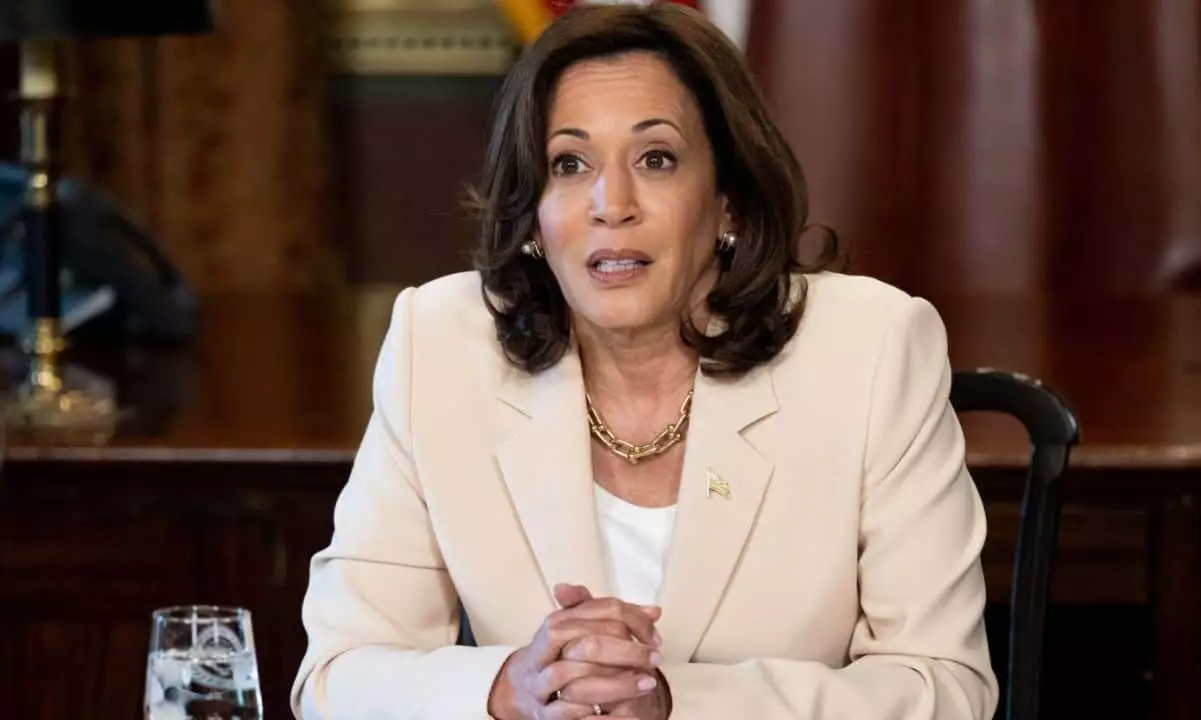The political landscape of the United States is continuously changing, especially as the nation approaches significant electoral events. One of the most noteworthy developments is the increasing focus on digital assets, which has caught the attention of various political figures, including Vice President Kamala Harris. This article delves into her recent commitment to developing digital asset policies that aim to support crypto investors, particularly among men of color—a demographic that the Democratic campaign believes could be crucial in the upcoming elections.
In a bid to engage voters, especially among communities historically marginalized in the financial sector, the Harris campaign has underscored its intentions to create a favorable regulatory environment for cryptocurrency. The announcement is strategic, considering that 20% of Black Americans reportedly own or have previously interacted with cryptocurrency. The Harris campaign seems to link this technological engagement to a broader agenda of economic empowerment, particularly aiming to democratize financial services that have long been inaccessible to these populations.
However, amidst this commitment exists an inherent risk of oversimplifying the complexities surrounding cryptocurrency investments. Harris’s intentions seem noble; however, a glaring concern arises from the broad and vague nature of her pledge. While it is clear she wishes to support crypto investors, the specifics of how her administration would achieve this remain undisclosed. As a result, the effectiveness of such a campaign promise may come into question, particularly if it lacks concrete details and actionable plans.
A significant challenge for Harris lies in overcoming the skepticism that many crypto enthusiasts hold. Critics have pointed to her historically cautious stance toward cryptocurrency, viewing her recent pledge with a degree of suspicion. Notably, Bitcoin Magazine’s Nikolaus Hoffman criticized her approach, labeling it as “race-based” and suggesting that it falls short of the genuine engagement required to attract serious cryptocurrency advocates. This skepticism is not unfounded, as her failure to mention key terminology related to the crypto industry, such as “blockchain,” during a recent event could lead observers to question her knowledge and commitment to the sector.
Existing within this backdrop is the contrasting narrative spun by former President Donald Trump, who has recently entered the cryptocurrency conversation with both fervor and specificity. His emergence as the self-proclaimed “Crypto President” has drawn attention, particularly for his promises of favorable regulations and a Bitcoin advisory council—points that resonate significantly within the crypto community. This ongoing rivalry reflects a broader struggle for political legitimacy that will likely occupy a significant place in the upcoming electoral dialogues.
The community’s nervousness regarding government regulations is rooted in their experiences with the current Biden administration. The Securities and Exchange Commission (SEC), helmed by Gary Gensler, has garnered backlash for its perceived regulatory overreach, which many in the crypto community interpret as hostility towards digital assets. The uneasy relationship between cryptocurrency advocates and the government complicates Harris’s attempts to rebrand her position and demonstrate her support for the sector.
Moreover, Trump’s active engagement with cryptocurrency has created an environment where Republican narratives might resonate more effectively among certain voter segments. His recent appearances in crypto-friendly venues and backing from the DeFi project World Liberty Financial (WLF) indicate a shift towards a more embracing stance on digital assets. This leaves Harris at a crossroad where she must not only clarify her intentions regarding cryptocurrency but also reassure her potential voters that her administration is prepared to safeguard their interests in this volatile market.
As the electoral season intensifies, both Kamala Harris and Donald Trump are actively attempting to position themselves to capture the interest of crypto investors and broader financial communities. However, narrowing the gap between rhetoric and actionable policy remains crucial for Harris’s credibility. With the complexities of cryptocurrency regulation, the challenge lies not just in appealing to specific voter demographics but in fostering genuine confidence within the investor community. Moving forward, it will be vital for politicians to deliver clear, transparent strategies that stand up to scrutiny, lest their promises be dismissed as mere political rhetoric.


Leave a Reply